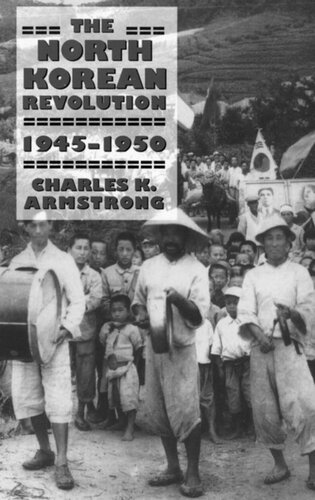

Most ebook files are in PDF format, so you can easily read them using various software such as Foxit Reader or directly on the Google Chrome browser.
Some ebook files are released by publishers in other formats such as .awz, .mobi, .epub, .fb2, etc. You may need to install specific software to read these formats on mobile/PC, such as Calibre.
Please read the tutorial at this link: https://ebookbell.com/faq
We offer FREE conversion to the popular formats you request; however, this may take some time. Therefore, right after payment, please email us, and we will try to provide the service as quickly as possible.
For some exceptional file formats or broken links (if any), please refrain from opening any disputes. Instead, email us first, and we will try to assist within a maximum of 6 hours.
EbookBell Team

4.7
46 reviewsNorth Korea, despite a shattered economy and a populace suffering from widespread hunger, has outlived repeated forecasts of its imminent demise. Charles K. Armstrong contends that a major source of North Korea's strength and resiliency, as well as of its flaws and shortcomings, lies in the poorly understood origins of its system of government. He examines the genesis of the Democratic People's Republic of Korea (DPRK) both as an important yet rarely studied example of a communist state and as part of modern Korean history.North Korea is one of the last redoubts of "unreformed" Marxism-Leninism in the world. Yet it is not a Soviet satellite in the East European manner, nor is its government the result of a local revolution, as in Cuba and Vietnam. Instead, the DPRK represents a unique "indigenization" of Soviet Stalinism, Armstrong finds. The system that formed under the umbrella of the Soviet occupation quickly developed into a nationalist regime as programs initiated from above merged with distinctive local conditions. Armstrong's account is based on long-classified documents captured by U.S. forces during the Korean War. This enormous archive of over 1.6 million pages provides unprecedented insight into the making of the Pyongyang regime and fuels the author's argument that the North Korean state is likely to remain viable for some years to come.